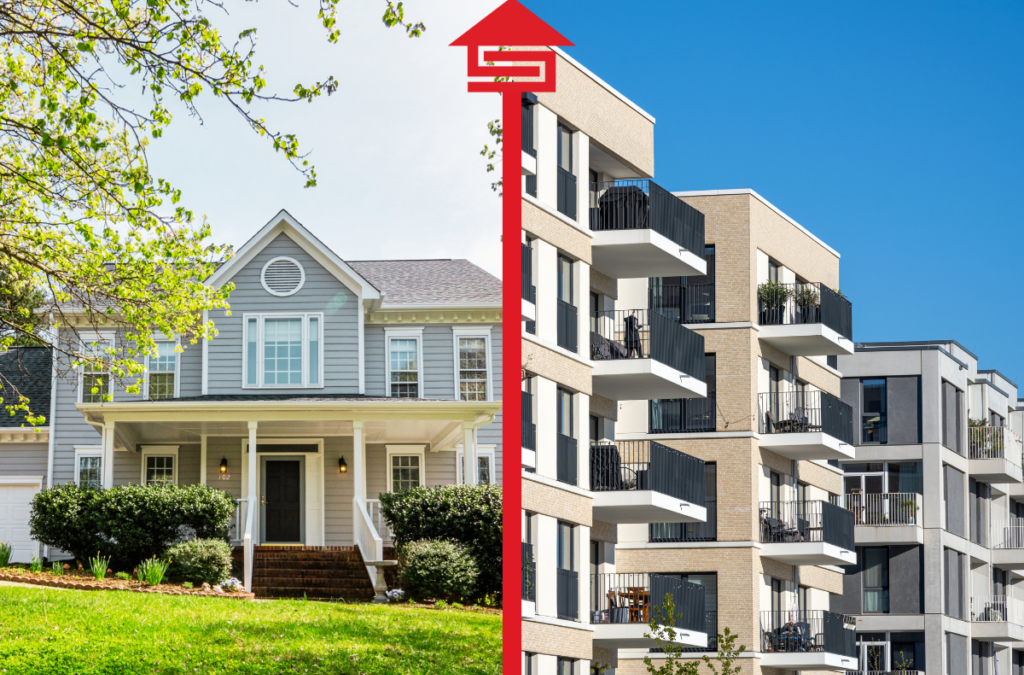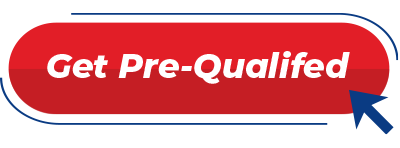by First Integrity Team Supreme Lending | May 10, 2025
Don’t let these condo loan myths get in your way of homeownership!

Condominiums can be an appealing alternative to traditional homes, offering perks like lower maintenance, community features, and prime locations. However, some potential homebuyers may hesitate to pursue applying for a condo loan, often due to misconceptions that it’s more challenging to secure a mortgage than a single-family home.
While getting a condo loan involves a few additional considerations, it isn’t as daunting as it may seem. With the right lender on your side, you can move through the process smoothly and confidently. At Supreme Lending, our dedicated condo team specializes in handling all the details. This will ensure your loan process is seamless from start to finish.
How Condo Financing Differs
When you apply for a mortgage on a single-family home, the lender’s primary focus is on your financing qualifications and the property itself. Condo financing, on the other hand, involves an additional layer of approval—not just on the individual unit but the overall condo complex. Lenders will review factors including:
- Homeowners Association (HOA). The financial health of the condo association and the condition of the property are evaluated to ensure the community is well-managed.
- Occupancy Rates. Lenders may require a certain percentage of units to be owner-occupied to reduce potential risks associated with high rental occupancy.
- Legal Status. The lender will also ensure there are no legal issues or disputes involving the condo association that may impact the financing process.
- Insurance Coverage. There are specific insurance requirements for the building and the association, which lenders review as part of the approval process.
These steps may add some complexity but are designed to protect both the buyer and lender. Now let’s debunk these common condo loan myths.
Myth #1 – Condo Loans Are Too Complicated
Condo loans may involve a few more steps than financing a single-family home, however they’re not as complicated as you might think. When you apply, you’ll provide basic details about the condo property, including the address. Then our specialized team at Supreme Lending will take it from there to review the complex. In some cases, you may even qualify for a limited review, which requires less paperwork and verification.
Myth #2 – Condo Underwriting Takes Took Long
The underwriting for a condo loan involves reviewing the financials, insurance, and rules of the condo’s Homeowners Association (HOA) to ensure the property is solid. While it may seem like more work, Supreme Lending’s condo team is quick to keep the process moving, helping to avoid any delays and keeping things on track.
Myth #3 – Condo Financing Is Riskier for Buyers
Some homebuyers may worry that getting a condo loan is riskier than financing a traditional home because of the HOA and shared ownership. In reality, the detailed review process can give buyers peace of mind that their condo community is financially stable and well-managed, so much so that their lender approved the condo loan.
Ready to Finance Your Dream Condo?
We’re here to help! There’s a reason why Supreme Lending offers such a wide variety of loan programs, including condo financing. Don’t let these condo loan myths hold you back. Contact us to get started today.
Related Articles:

by First Integrity Team Supreme Lending | Apr 1, 2025
You’ve submitted your initial mortgage application, completed the necessary paperwork, and even had your home appraised. Now, you find yourself at the crucial stage of the loan process – underwriting. This is where the underwriter, acting as a gatekeeper for the lender, meticulously assesses your financial details to determine the risk of financing your home. In this article, we will explore the mortgage underwriting process, its significance, and what borrowers can expect during this critical phase.
Who Are Underwriters and What Do They Do?
Underwriters play a pivotal role in safeguarding the interests of the lender during the home loan process. Their primary responsibility is to assess your ability to repay the loan and evaluate the risk associated with lending money to you. They review various aspects of your financial profile, including your credit score, income, and the appraised value of the property. The goal is to ensure that borrowers are not taking on more mortgage responsibility than they may be able to handle.
Importance of Underwriting:
The housing crisis of 2008 highlighted the need for stricter underwriting guidelines. Loose regulations during that period allowed borrowers to access funds without adequate means to repay, resulting in widespread defaults. Today, underwriters adhere to stringent guidelines to help prevent the recurrence of such crises, protecting both borrowers and lenders alike.
What to Expect During the Underwriting Process:
Further Paperwork May Be Needed:
During the underwriting process, underwriters may request additional documentation to gain a comprehensive understanding of your financials. It’s crucial to provide any requested documents promptly to keep the mortgage process moving smoothly.
Turn-times Vary:
Depending on the loan type and market conditions, the underwriting process may take anywhere from 5 to 14 days. Understanding the potential timeline may help you manage expectations and plan accordingly.
Disclosure Mailings:
Borrowers may receive electronic or paper loan disclosures throughout the process. These disclosures are sent to ensure compliance with state and federal laws.
Loan Determinations:
After reviewing your application, the underwriter will issue one of three determinations:
Conditional Approval of Loan:
Your loan is cleared for funding, and your lender will discuss any remaining conditions specified by the underwriter. A closing date will be scheduled.
Suspension of Loan:
A suspension occurs when there are questions about a critical facet of your loan file. Your lender will work with you to identify and address any concerns, leading to a potential conditional approval.
Denial of Loan:
If your file indicates a high level of risk, the underwriter may deny the loan based on industry benchmarks, not personal intuition. For example, perhaps there was a significant drop in your credit score, indicating potential payment inconsistencies and a big risk for a lender.
What Happens If Your Loan Is Suspended or Denied?
Choosing the right lender is crucial, and at Supreme Lending, the relationship doesn’t end if your loan faces challenges. Supreme’s dedicated team may be able to help overcome underwriting objections, identify errors, and work with you to improve your application.
Understanding the mortgage underwriting process is vital for borrowers navigating the complex world of home loans. As you approach this final checkpoint, being prepared for potential requests for additional documents, varying turn times, and the possible outcomes of the underwriting review can help streamline the process. With Supreme Lending by your side, you can navigate the underwriting process with confidence and increase the chances of a successful loan closing.
Dos and Don’ts During the Mortgage Underwriting Process
The journey to homeownership involves various stages, and one of the most important steps is the mortgage underwriting process. This phase determines whether your loan will be approved or not. To ensure a smooth underwriting experience with Supreme Lending, it’s essential to follow a set of Do’s and Don’ts.
Do’s:
Maintain Consistent Debt Payments:
Make minimum monthly payments on your consumer debt until the loan closes. Any deviation from this may have adverse effects on your mortgage application.
Timely Mortgage Payments:
Ensure your mortgage payments are made on time and are no more than 15 days late. Any delay beyond this timeframe may pose risks to your loan approval.
Cooperate with the Title Company:
Respond to calls from the Title Company. Occasionally, there may be outdated or unreleased liens, which can complicate the ownership of your property. Addressing these issues promptly is vital for clearing your property’s title in preparation for closing.
Submit Requested Documents Promptly:
Provide any documents requested by Supreme Lending immediately. Timely submission is crucial, as documents can have expiration dates, and delays may affect your application.
Retain Financial Documents:
Hold onto electronic and paper copies of pay stubs, bank statements, and other financial documents until the loan closes. You may be required to provide them during the underwriting process.
Don’ts:
Avoid Job Changes or Retirement:
Refrain from resigning or retiring during the loan process without consulting your Supreme Lending mortgage expert. Changes in employment status may impact your loan approval.
No New Credit Accounts:
Do not open or apply for new credit accounts before your mortgage loan closes. New accounts or inquiries can be easily identified during underwriting and may jeopardize your application. Our experienced professionals understand that life happens, and should a need arise for situations such as applying for student loans or financing a child’s upcoming college tuition, we ask that you discuss your plans with a member of our team before you take action.
Avoid Balance Transfers:
Refrain from making balance transfers on existing credit card balances. Such actions may slow down the mortgage application process.
Don’t Pay Off Existing Credit Accounts in Full:
Avoid paying off existing consumer credit accounts (e.g. auto loans, credit cards, etc.) in full unless it aligns with the natural progression of making minimum monthly payments.
Successfully navigating the mortgage underwriting process requires careful attention to detail and adherence to specific guidelines. By following the Do’s and Don’ts outlined above, you may increase the likelihood of a smooth and successful loan approval. If you have any questions or concerns about your loan, don’t hesitate to reach out to the Supreme Lending team for assistance. Remember, open communication and timely action are key to a positive mortgage underwriting experience.

by First Integrity Team Supreme Lending | Mar 25, 2025
Discover the Key Differences Between a Condo vs. Single-Family Home
So you’ve finally decided to end the debate of renting vs. owning a home and pull the trigger on your homebuying journey. Congratulations! The next big question is deciding what kind of property you want to purchase—a condo vs. single-family home. Both options offer the potential to build equity, but the right choice comes down to your lifestyle, budget, and long-term goals.
To help you decide, here’s an overview the pros and cons of each option and how Supreme Lending may help you finance your dream home, whether it’s a condo or a single-family house.
Pros & Cons of Buying a Condo
Pros
- Lower Maintenance. One of the biggest benefits of condo living is that most exterior maintenance and landscaping are handled for you by the Homeowners Association (HOA). If you’re looking for a lower-maintenance lifestyle where you can focus on enjoying your space without the hassle of yard work or home repairs, you may want to consider a condo.
- Amenities. Many condo communities offer shared amenities such as pools, gyms, and clubhouses. This can provide luxurious perks without the extra cost of maintaining the amenities yourself.
- Affordability. In general, condos may be more affordable than single-family homes. For this reason, they are a great option for first-time homebuyers or those looking to downsize. If you’re trying to buy in a competitive housing market, a condo may offer a more budget-friendly option to open the door to homeownership.
- Location. Condos are often located in urban areas or desirable neighborhoods with easy access to dining, shopping, and public transportation. If you enjoy the vibrancy and convenience of city living, a condo can put you right in the action.
Cons
- HOA Fees. While HOAs manage the maintenance of shared spaces and amenities, that comes with a monthly cost. These fees can add up, and it’s important to factor them into your budget when considering the overall homebuying costs.
- Limited Privacy. Since condos are often in multi-unit buildings, you’ll likely be sharing a wall with neighbors. If privacy and quiet are important to you, this is something to consider.
- HOA Restrictions. HOAs typically have rules regarding what you can and cannot do with your unit, from the color of your front door to controlling whether you can rent it out. While these rules are put in place to help maintain the property’s value, they may also limit your freedom.
Pros & Cons of Buying a Single-Family Home
Pros
- More Space. Single-family homes typically offer more living space, both indoors and out. If you need room for a growing family, pets, or hobbies, or simply enjoy having a larger yard, a house may give you the space and flexibility you need.
- Privacy. Unlike condos, single-family homes can provide more privacy since you wouldn’t be sharing a wall with your neighbors. If peace and quiet are priorities, a standalone house may be your answer.
- Freedom to Personalize. As a single-family homeowner without an HOA, you have the freedom to make changes and renovations to your home. Want to build a deck, repaint your exterior, or add on more square footage? You would have the flexibility to do so.
- Suburban and Rural Living. Many single-family homes are located in suburban or rural areas. This may offer a quieter, more relaxed lifestyle away from the hustle and bustle of city life.
Cons
- Maintenance Responsibilities. With the freedom of owning a standalone property comes the responsibility for home maintenance, repairs, and upkeep. From mowing the lawn to fixing a leaky roof, you’ll be responsible for keeping everything in good condition.
- Higher Cost. Oftentimes, single-family homes may be more expensive than condos, both in terms of purchase price and ongoing costs such as property taxes, insurance, and utilities. Be sure to keep those additional costs in mind when deciding to buy a condo vs. a single-family home.
- Location. While one of the perks of single-family living is being in a more suburban or rural area, that also means you may be father away from city centers. This could result in a longer commute or less access to urban amenities.
How Do You Decide?
When choosing between a condo vs. a house, here are four helpful considerations:
- Lifestyle. Do you prefer a low-maintenance, lock-and-leave lifestyle with shared amenities? Or do you value privacy and space to personalize your property? You daily routine and personal preferences should guide your decision.
- Budget. While condos may have lower upfront costs, you’ll need to factor in HOA fees. On the other hand, single-family homes may require more financial investment in terms of ongoing maintenance.
- Location, Location, Location. Think about where you want to live. Do you prefer the convenience of urban life? Or do you dream of a suburban or rural retreat? The location has a direct impact on your lifestyle and commuting needs.
- Long-Term Goals. If you’re planning to grow your family, need extra space for hobbies, or want the freedom to make home improvements, a single-family property may make more sense. But if convenience and lower maintenance are calling your name, a condo may be the right fit.
The Benefits of Homeownership – No Matter What You Choose
Whether you opt for a condo or a standalone home, you’ll still enjoy all that homeownership has to offer. Owning your own place may give you the potential to build equity and financial stability. You’ll also have the flexibility to create a space that truly reflects your personality and lifestyle. Plus, homeownership has the potential to provide long-term rewards, as your property may appreciate in value over time.
Supreme Lending Has You Covered
Ranked as a 2024 top 15 retail lender in the country by Scotsman Guide, Supreme Lending has a wide range of mortgage options to help put people into homes—whether it’s a condo or single-family. Whatever your dream of homeownership may look like, we’re here to help with your home financing needs.
Ready to get started? Reach out to our team today!
Related Articles:

by First Integrity Team Supreme Lending | Mar 20, 2025
Deciding between renting vs. owning a home may be one of the biggest debates when it comes to housing. Both options offer unique advantages, but the key is to find which fits your personal goals and lifestyle. Let’s explore the pros and cons of each option and take a deep dive into the many potential benefits of homeownership and mortgage options that renters may not realize.
Pros and Cons of Renting
Renting offers flexibility and lower upfront costs, making it an appealing option for many. Here are some of the possible benefits and drawbacks of renting.
Pros of Renting
- Renting allows you to move more easily, ideal for those who frequently relocate or prefer not to be tied down to one area.
- Less Responsibility. When renting, your landlord or property management company is typically responsible for maintenance, repairs, and property upkeep. This saves you the headache of managing those tasks and additional costs.
- Lower Upfront Costs. When moving into a new rental, security deposits and first month’s rent are typically more affordable than a down payment for a home and other homebuying costs.
Cons of Renting
- No Home Equity. Making rent payments doesn’t build equity—unlike the potential for a home. No equity means you can’t take advantage of opportunities like cashing out on equity with a refinance.*
- Limited Personalization. Rental properties often have restrictions on renovations or even simple changes like painting walls and installing new fixtures.
- Rising Rents. Unlike a fixed mortgage, rent payments can oftentimes increase every year, sometimes significantly depending on your local market conditions.
Benefits of Owning
While renting may offer short-term convenience, owning a home comes with several potential long-term benefits that renting can’t match. Beyond simply having a place to live, explore these rewards of homeownership:
- Potential to Build Equity. Home values may appreciate over time. Unlike renting, homeownership may allow you to build equity as a future investment.
- Stable Payments. With fixed-rate mortgages, you have the confidence and peace of mind that your monthly payments will remain the same throughout the life of the loan.
- When you own your home, you have the creative freedom to really make it your own. You can make as many home renovations as you want to fit your unique style.
- Possible Tax Benefits. Homebuyers may qualify for potential tax deductions. Work with your tax advisor to learn more and see if owning a home could save you tax dollars.
- Pride of Ownership. There’s a unique sense of accomplishment and pride that comes with owning a home, allowing you to put down roots in a community.
Renting vs. Buying: Seven Key Questions to Consider
- How long do you plan to stay in one place? If you’re planning to stay in one location for several years, buying may be a smarter option.
- What’s your financial situation? Do you have enough savings for a down payment and closing costs? Evaluate your finances and get pre-qualified to determine your options.
- Are you ready for the responsibilities of homeownership? Owning a home comes with additional responsibilities than renting such as on-going maintenance, repairs, and upkeep.
- What’s your credit score? Your credit score plays a significant role in qualifying for a mortgage and getting favorable loan terms.
- What are the housing market trends in your desired area? Depending on your local area, it may make more sense to rent if housing prices are too high or out of your budget.
- Do you value flexibility or stability more? Consider your current lifestyle preferences. If you’re not ready to settle down, renting may offer the flexibility you need. However, if you’re drawn to a more stable living situation, homeownership may be the better option.
- What are your long-term goals? How could homeownership fit in with your broader financial and lifestyle goals, such as the potential to building equity, undergoing home renovations, investing in real estate, or creating a family home.
Down Payment Assistance & First-time Homebuyers
Don’t forgot to explore down payment assistance and first-time homebuyer programs that may help open the door to homeownership sooner than you think! FHA loans offer several benefits for first-time buyers, including lower down payment and credit requirements. While Conventional loans may only require as low as 3% down for qualified first-time buyers.
Ready to Stop Paying Your Landlord’s Mortgage?
Deciding between renting vs. owning a home is a big decision that depends on several factors such as your mortgage qualification, long-term plans, and personal preferences. While renting offers flexibility, homeownership may offer long-lasting benefits.
Ready to explore your homebuying options? Contact our team at Supreme Lending to discuss how to make your mortgage work for you!
*By refinancing an existing loan, total finance charges may be higher over the life of the loan.

by First Integrity Team Supreme Lending | Mar 10, 2025
Buying a home is an exciting milestone, but it may also come with unfamiliar terms and processes that feel overwhelming. One term you’ll likely encounter is “escrow.” If you’re unsure what escrow means or why it’s important during home loan transactions, you’re not alone—and that’s completely okay! At Supreme Lending, we’re here to make sure every step of your journey feels approachable and empowering. Our goal is to help you move forward with confidence and clarity. Understanding escrow during home loan transactions is crucial to feeling informed and secure throughout the process. Let’s take a closer look at escrow and why it’s such an important part of your homebuying experience.
What Is Escrow?
Escrow is essentially a secure trust account managed by a neutral third party. This account holds money, documents, or other assets on behalf of the buyer and seller during a transaction. The purpose of escrow is to ensure that all conditions of the agreement are met before funds and documents are transferred to their rightful owners.
How Escrow Works in Home Loan Transactions
Escrow plays a vital role in both the home-buying process and ongoing homeownership. Here’s how it functions at different stages:
- For Brokers: When purchasing a home, buyers typically deposit earnest money into an escrow account. This account securely holds the funds until the transaction closes, providing protection for both the buyer and seller.
- For Lenders: After the purchase, escrow continues to be essential. Many lenders set up an escrow account to manage recurring payments for property taxes and homeowners insurance. This ensures these important bills are paid on time, preventing coverage lapses or late fees.
Why Is Escrow So Important?
Escrow adds security and simplifies a process that may otherwise feel overwhelming. Here’s why it’s a cornerstone of homeownership:
- Protects Buyers and Sellers: Escrow ensures no funds or documents change hands until all conditions of the sale are fully met.
- Streamlines Payments: For homeowners, escrow simplifies life by automatically managing property taxes and insurance, making budgeting easier.
- Ensures Transparency: A neutral third party oversees the process, promoting fairness and clarity for everyone involved.






